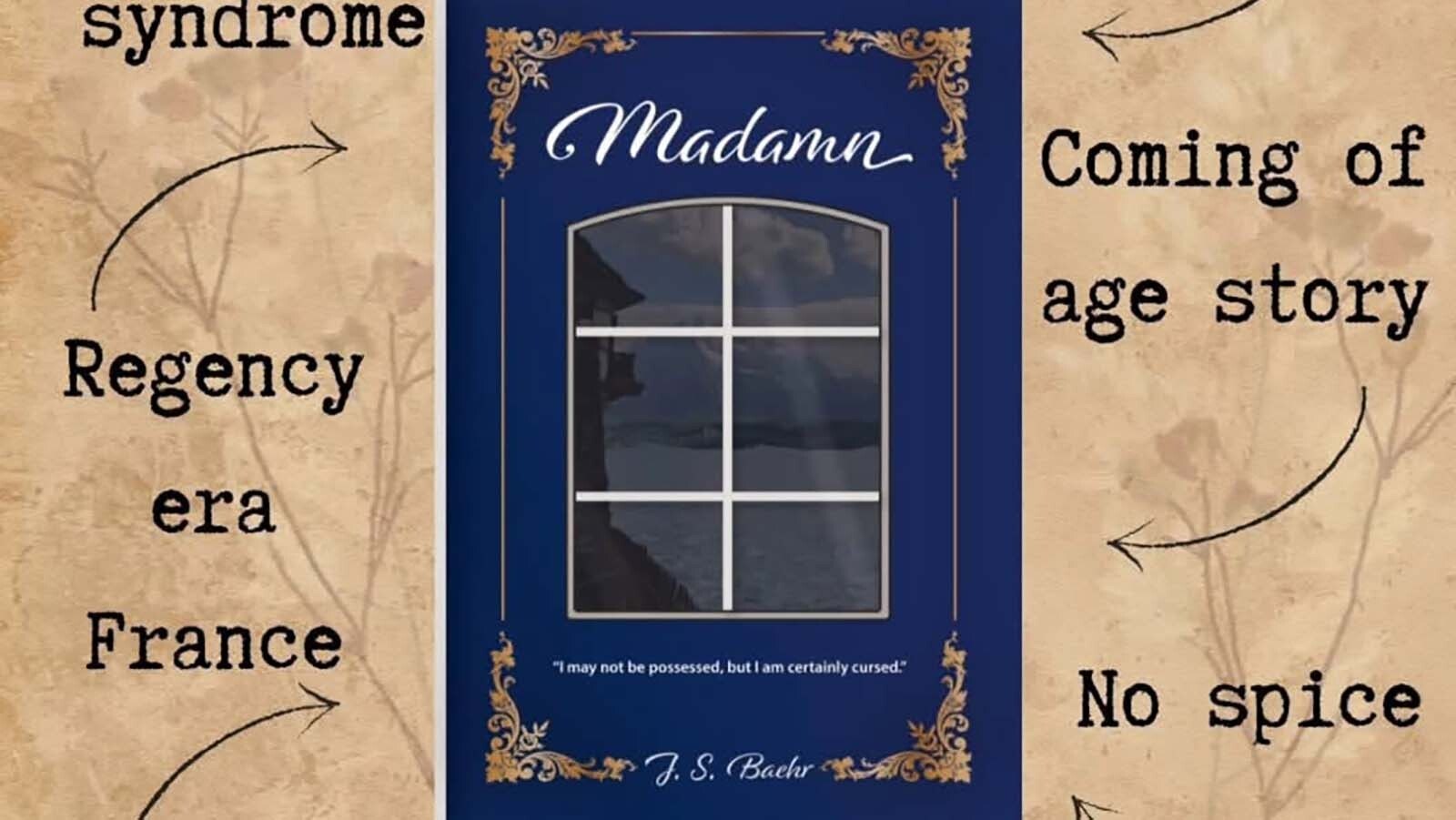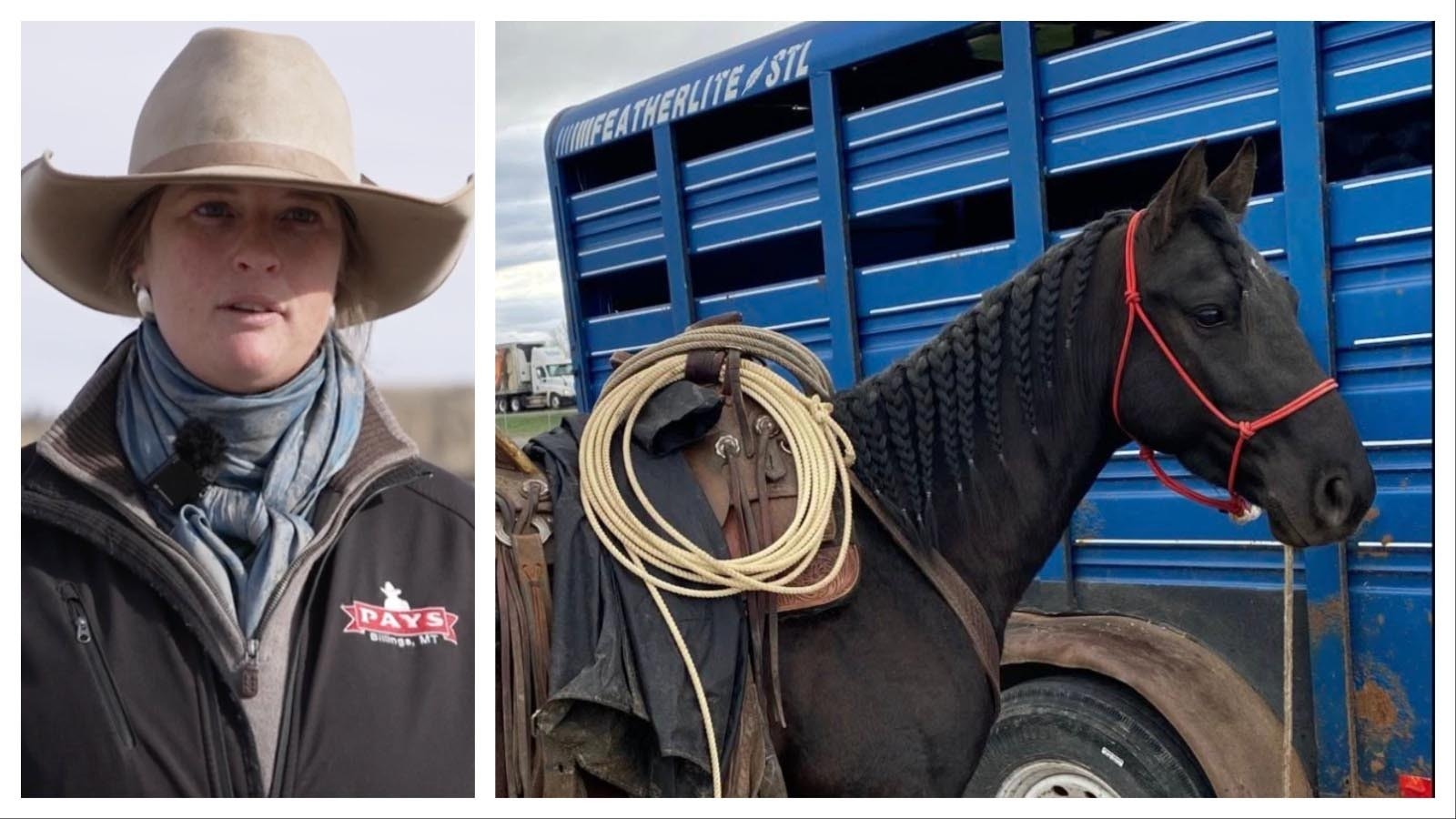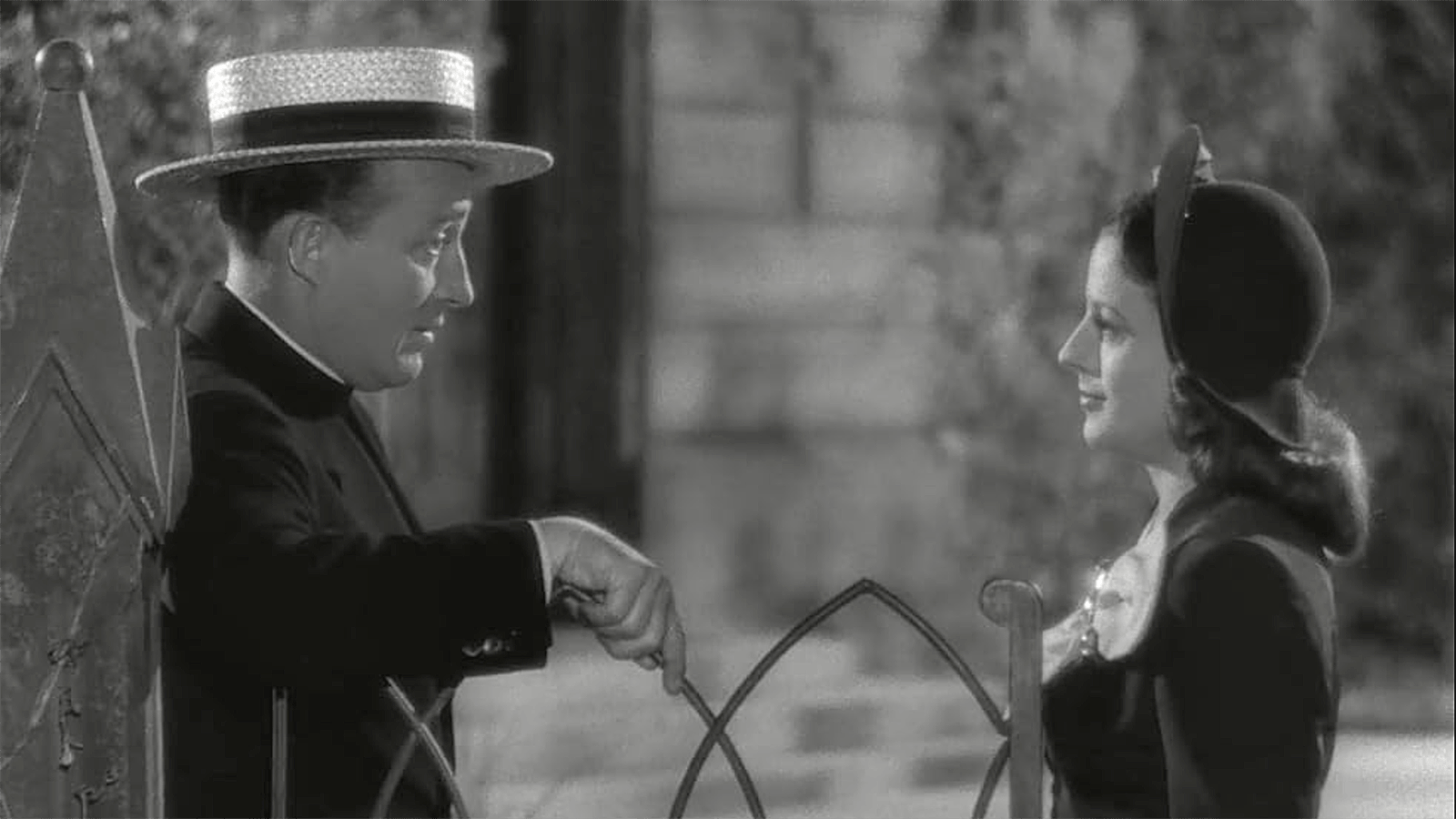The countess was in trouble.
It was the early 1800s in France and her uncontrolled twitching had just taken on a new malady. She was cursing and this was completely unbecoming of a noblewoman.
For her entire life, she had looked for an explanation for her strange tics, and it finally came — one year after she died in 1884.
The countess had Tourette’s syndrome and, more than a century later, Jessica Baehr, an author in Lander, Wyoming, saw this French woman as a kindred spirit.
Baehr wanted to bring the noblewoman’s story back to life, and since there wasn’t enough information about the “cursed countess,” Baehr turned to fiction to tell the story, and the result was “Madamn," released this past September.
Baehr had originally discovered a nine-page document about the countess, who was the first diagnosed case of Tourette’s. She was fascinated that this noblewoman lived a relatively normal life despite the tics and cursing that plagued her life.
Baehr could relate to this specter of the past because she had also been diagnosed with Tourette’s herself and lived a life interrupted by small little outbursts which she has affectionately nicknamed Paula Jean.
The Disruptive Tics Become Musical
Baehr first noticed the strange hiccups when she was a teenager, and by her senior year in college, the uncontrollable sounds were becoming disruptive. Before the noises interrupted her life, Baehr was painfully shy and would never talk to people directly. However, that had to change as she navigated the weird hiccups that would appear on their own.
“I learned to talk to people because I had to,” Baehr said. “I would make these noises and people would be asking me if I was okay.”
Baehr would reassure them that she was fine. This forced interaction with those around her helped her learn the skill of conversation, but she still didn’t have a name or reason for the mini outbursts.
Baehr went off to college and was majoring in music when the noises took on a new life.
“The sounds started to change in pitch and fluctuate,” Baehr said. “It became this opera diva with an awesome vibrato.”
The noises were no longer just hiccups, and though Baehr would not find out for another three years, she had a form of Tourette syndrome that was called echolalia. This meant that she would repeat sounds that she often heard and was primarily vocal rather than physical.
After her disruptions became musical, Baehr went through several doctors trying to find an answer to her uncontrolled operatic disruptions. One doctor said it was muscle spasms and gave her relaxants. That only succeeded in making her tired in her college classes.
“I was still ticking,” Baehr said. “It was a bit of a journey since I was making these noises and movements for about seven years without knowing what was going on.”
Baehr said that since her symptoms were fairly mild, she wasn’t that worried about the little noises and kept pressing on with her college career.
“It’s not something that really put me in danger, which I know some people’s Tourette’s do,” Baehr said. “I’ve seen a documentary where one girl would grab her own throat and strangle herself.”
Everybody has different tics and different quirks and oddities, Baehr explained, and she feels very fortunate with her own symptoms, which manifest as sounds and slight movements. However, still not knowing what was going on, Baehr knew she could not go into a musical career with these interruptions and changed to social work.
Disrupting Her Career Path
As a social work major, Baehr would make the noises in class, and one class in particular remains seared in her memory. The head of the department was talking about meeting with people one-on-one and the importance of silence. That moment of quiet, he had said, was when people start to really understand what’s going on and make a change in their lives.
He then turned to Baehr in the middle of class and said, “Do you see why your noises would be a problem here?”
Mortified, Baehr realized that her instructors were afraid to place her in an internship because of the vocal disruptions that she was making.
“It was a really rough point in my life,” Baehr said. “I had overwhelmed myself and so I quit going to classes. I failed everything that semester.”
Before allowing her to re-register, her college sent her to the school psychologist to make sure she would not repeat this pattern of failure and to discover the root cause.
As a senior in college, after years of consulting doctors, it was this psychologist who finally gave Baehr a name for her strange tics.
“I met the four qualifications for Tourette’s,” Baehr said. “Onset before 18, physical tics, vocal tics, and there was not really any rhyme, reason or pattern to the noises.”
Making A Friend With Her Noise
Baehr said that her diagnosis changed her career path. Instead of pursuing an internship as a social worker, she switched her major for the third and final time and spent her senior year researching and writing a paper on her tics.
“I switched to communications, which was also kind of great for my brain,” Baehr said. “It was a unique degree called International Cultural Studies, which was a combination of communications, anthropology and humanities. It really helped my brain get through college.”
She went on a deep dive study on Tourette syndrome to understand what it was and how it affected communications. She also named her affliction.
“I was talking with a friend about how these noises just have so much personality,” Baehr said. “They’re just kind of sassy.”
Her friend responded that she should call the noises Paula, and the name stuck.
When Baehr finished her paper on her research and experiences with Tourette syndrome, her professor was impressed. He told her there was nothing like it in the field and that she needed to get it published.
“I went back to my roots of being a bookworm and expanded the paper into a book,” Baehr said.
The result was a hundred-page little book, “Awkwardly Strong,” which Baehr published under a pseudonym rather than her maiden name of Jessica Smith.
“Since I had this alter ego of my Tourette syndrome which had a lot of personality, I published under the pen name Paula Jean Ferri,” Baehr said. “The Tourette’s has been like a tutor, trying to teach me as I go through a lot of different experiences in my life.”
Turning Tics Into Words
Baehr said that Paula goes off at just the right time to make everybody laugh, and she has learned to lean into that humor.
“I’m not that funny, I was the painfully shy kid,” Baehr said. “I can appreciate the comedic timing that Paula has, but it entirely wasn’t me. I wouldn’t have thought of that at all.”
Baehr went on to publish three books in a series about Tourette’s and dabbled for a little while in offering writing courses for other aspiring authors. However, she missed writing for herself and recently returned to her own craft, but this time, she decided to try her hand at fiction.
Her journey into fiction began while Baehr was doing a deep dive study on the history of Tourette syndrome. She was surprised to learn that the disorder had been identified by doctors in 1885 — 140 years ago.
“It was nothing new and that frustrated me that we still don’t know what is going on,” Baehr said. “The reason it even became a diagnosis was a woman they only knew as Mme. Dompierre was a noblewoman who had the swearing form of Tourette’s in 1825 and she was seeking answers.”
For 60 years, this French countess searched for answers to her uncontrolled tics and swearing. It turned out that this unnamed countess had coprolalia, and because she was a noblewoman, doctors took the symptoms seriously and started to look into it.
“She had proper manners and followed all the social rules,” Baehr said. “Until she would just call someone an effing pig. This was completely contrary to the manners that she normally exhibited.”
Baehr decided to write the countess’s story, and the result was a novel using the limited information Baehr had uncovered about this mysterious woman.
“I wanted to expand on this woman’s story because she was the reason Tourette’s was taken seriously instead of just bad manners and bad breeding,” Baehr said. “Her story was important, and it got lost.”
Baehr used her own experiences with Tourette’s to bring her character to life and was able to understand the frustration the cursing countess encountered in not being able to control her outbursts.
“It’s been really cool to see, since the time that I started all of this, how much the Tourette syndrome community has gotten so much more visibility,” Baehr said.
“Madamn” was released in September and Baehr is already at work on another work of fiction, this one about the cursing countess’s mother. The reason for the second book is that Baehr wanted to redeem a character that people hated because of the way she acted towards her daughter’s unseemly behavior. Putting her efforts towards writing fiction is a common theme among those that have Tourette’s.
“A lot of people in the Tourette syndrome community do tend to have creative outlets because they find that that placates their tics a little bit more,” Baehr said. “Not just in writing but they are also singers like Billie Eilish and comedians.”
Baehr does not see Paula, her Tourette’s, as an enemy but as a tool that she can utilize.
“I don’t know that there’s really such a thing as good or bad traits,” Baehr said about her tics. “It’s all in how you use them.”
Jackie Dorothy can be reached at jackie@cowboystatedaily.com.











